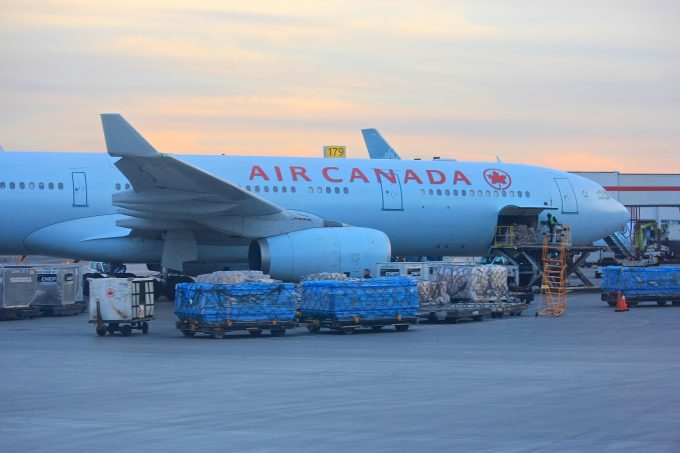Ban on overtime at port of Montreal a threat to supply chains, says MPA
Canada’s port of Montreal (MPA) is “concerned” about the supply chain impacts of the port ...
GM: RAISING THE ROOF GGM: IN FULL THROTTLE GZIM: MAERSK BOOST KNIN: READ-ACROSSMAERSK: NOT ENOUGHMAERSK: GUIDANCE UPGRADEZIM: ROLLERCOASTERCAT: HEAVY DUTYMAERSK: CATCHING UP PG: DESTOCKING PATTERNSPG: HEALTH CHECKWTC: THE FALLGXO: DEFENSIVE FWRD: RALLYING ON TAKEOVER TALKODFL: STEADY YIELDVW: NEW MODEL NEEDEDWTC: TAKING PROFIT
GM: RAISING THE ROOF GGM: IN FULL THROTTLE GZIM: MAERSK BOOST KNIN: READ-ACROSSMAERSK: NOT ENOUGHMAERSK: GUIDANCE UPGRADEZIM: ROLLERCOASTERCAT: HEAVY DUTYMAERSK: CATCHING UP PG: DESTOCKING PATTERNSPG: HEALTH CHECKWTC: THE FALLGXO: DEFENSIVE FWRD: RALLYING ON TAKEOVER TALKODFL: STEADY YIELDVW: NEW MODEL NEEDEDWTC: TAKING PROFIT

Air Canada Cargo is looking to transform its relationship with some key customers by seconding staff to them.
The objective is to form a long-term collaborative relationship that transcends selling its own service to a broader consultative role.
“We’re beginning to implant some people with a couple of customers,” reported Tim Strauss, vice-president of cargo.
These staff are stationed at the clients’ head offices, positioning them much closer to the customers and gives them a better understanding of the clients’ requirements.
“When they have a need, you’re the first they turn to,” added Mr Strauss.
In time he wants this setup to evolve into a more consultative approach; instead of automatically working on the best solution within the scope of Air Canada, implanted staff may advise clients that, in some situations, they may be better served by another carrier, Mr Strauss said.
He says this is not a revolutionary approach, but a case of deja vu – it’s a strategy used with some of the largest global forwarders. He said: “We did this before, but then business fell off and the decision was made to pull back. Now we go back.”
Airlines have allocated dedicated sales staff to individual clients in key sectors like the automotive industry before, but without locating them at customers’ facilities, an industry executive turned consultant said. “The principle works well,” he added.
However, Mr Strauss does not envisage a large number of Air Canada Cargo implants in forwarder head offices around the globe.
“We want to be selective,” he said. “We don’t want to be a scalp hunter.”
Seconding sales staff to key customers is an element of a broader revamp of the airline’s sales strategy, a major part of which is to boost its sales force this year. While technology may help getting information faster to customers, this alone is not enough to generate sales.
“We need the relationship element,” Mr Strauss said. “It’s still a service game. We continue to invest in that.”
At the same time AC Cargo has been shifting its selling focus more towards leveraging the entire network.
“In the past we were selling regionally well, but not so the network. We’re getting better,” said Mr Strauss, adding that, in some cases, selling capacity on a particular route such as Shanghai-Toronto may be less beneficial in the overall network context than using that space for a shipment from elsewhere.
At the same time, the airline is working to deepen its focus on some core sectors.
“We were mile-wide but inch-deep,” he added. “We want to understand customers better and get closer to them.”
AC Cargo has been on something of a roll. Last year it grew 27%, well ahead of the global average growth of 14%, and the momentum has held in the early months of 2018.
“The first quarter was better than Q1 17, in terms of percentage growth, from a bigger base and without freighters,” Mr Strauss said.
Comment on this article